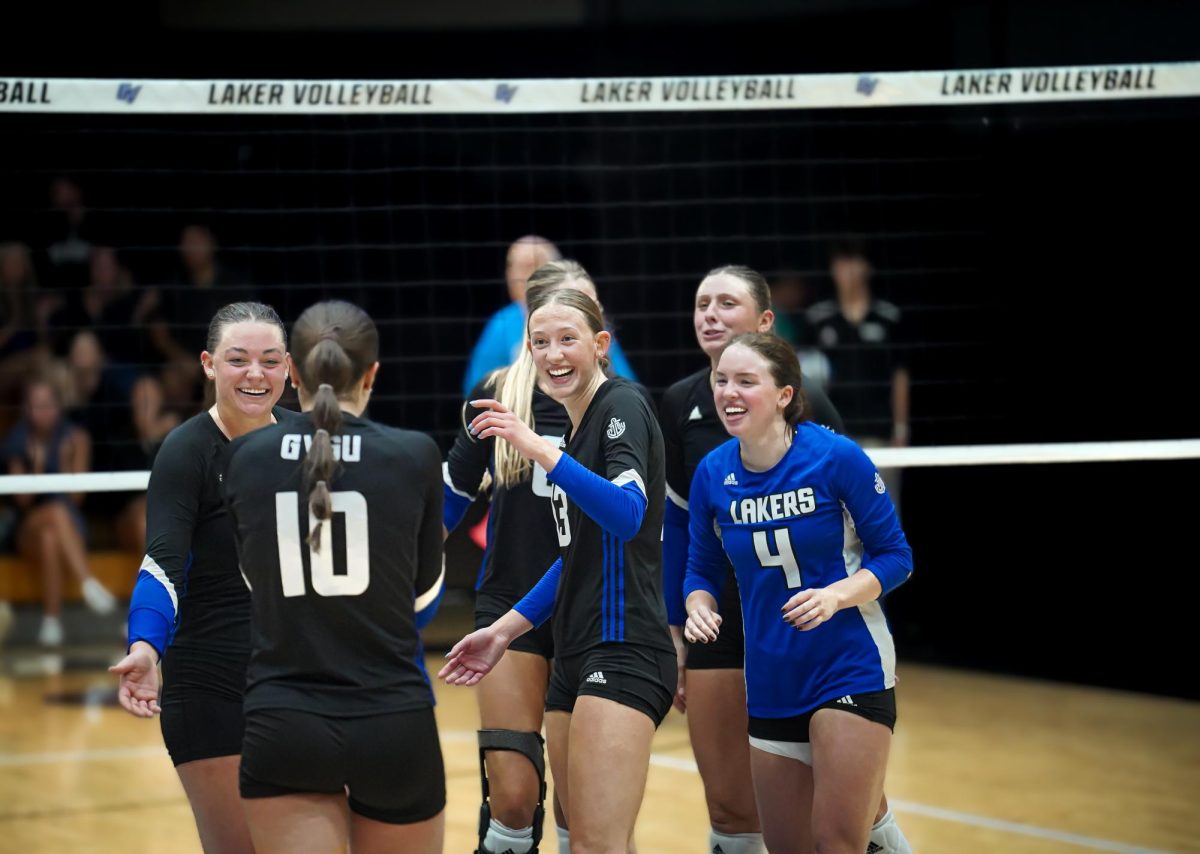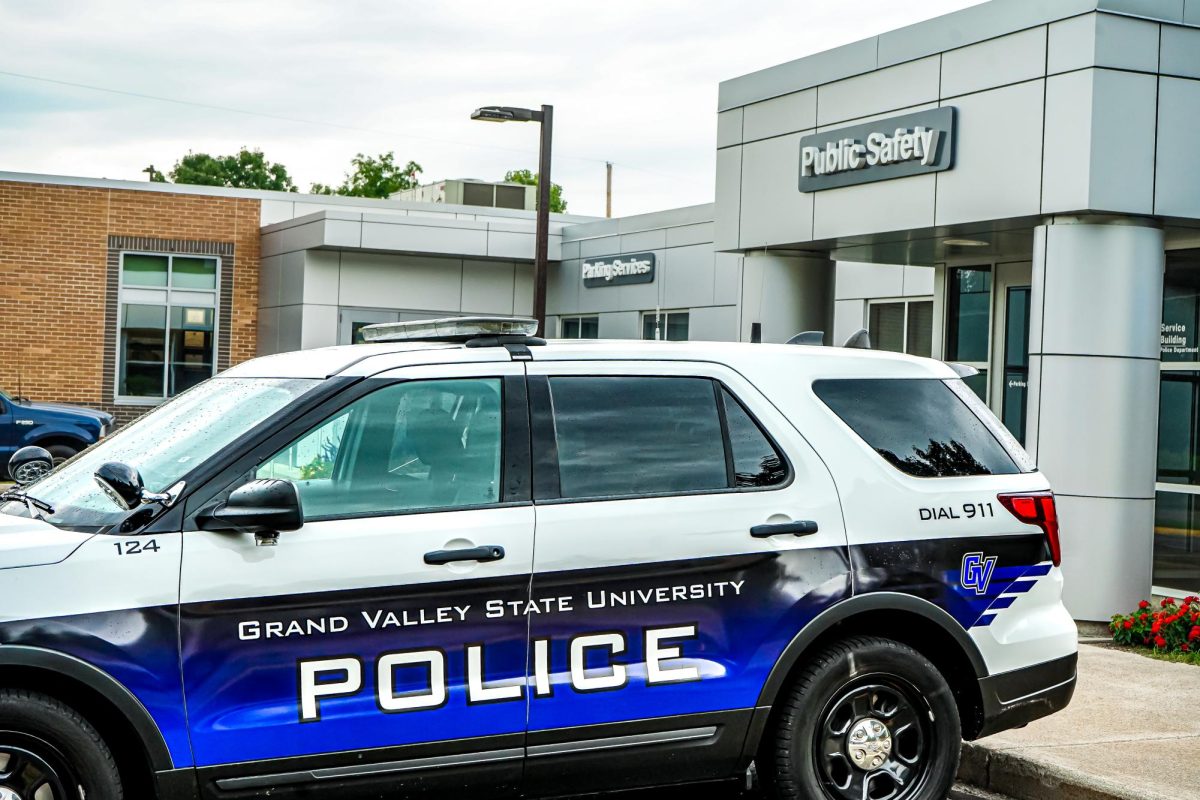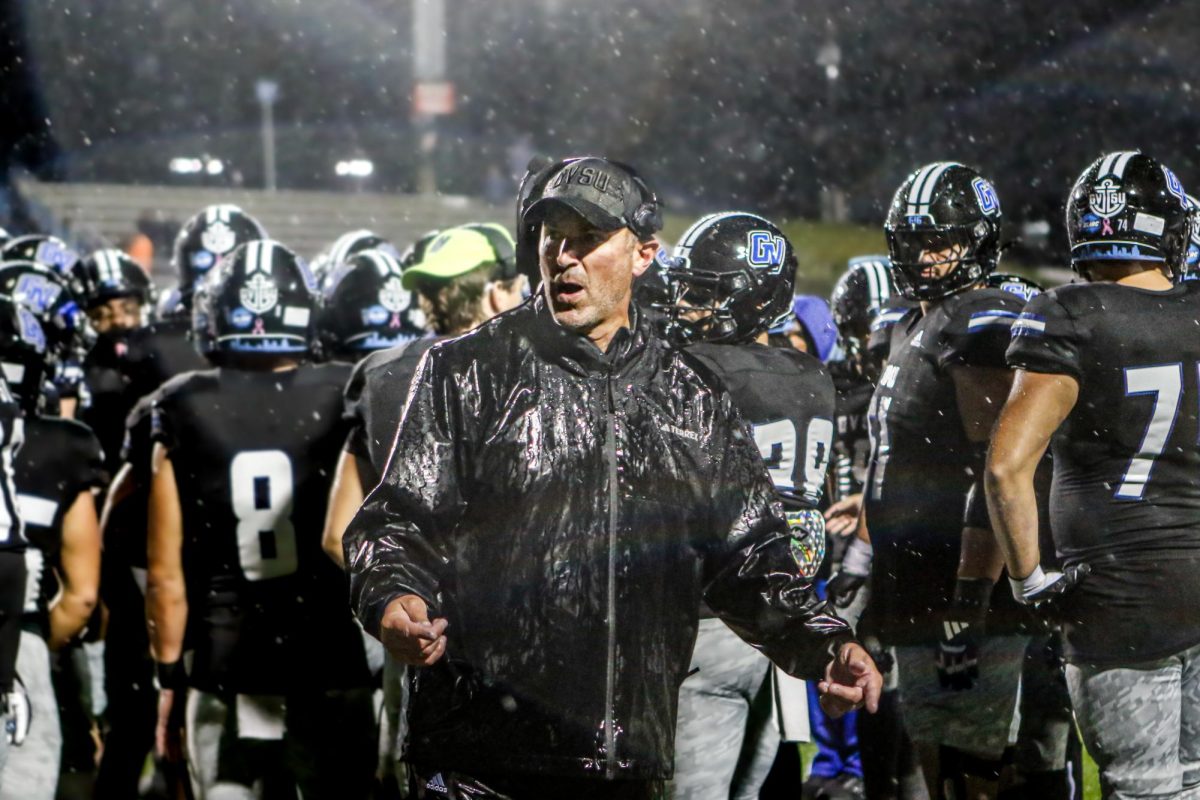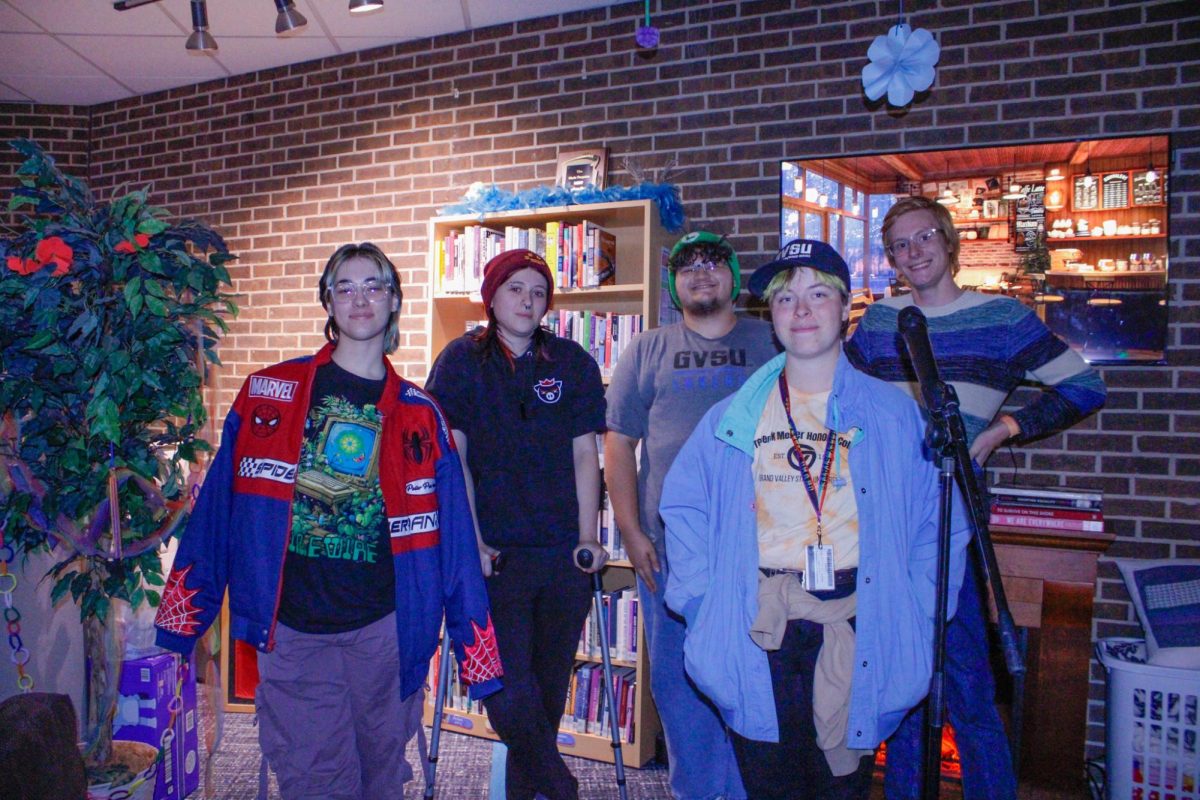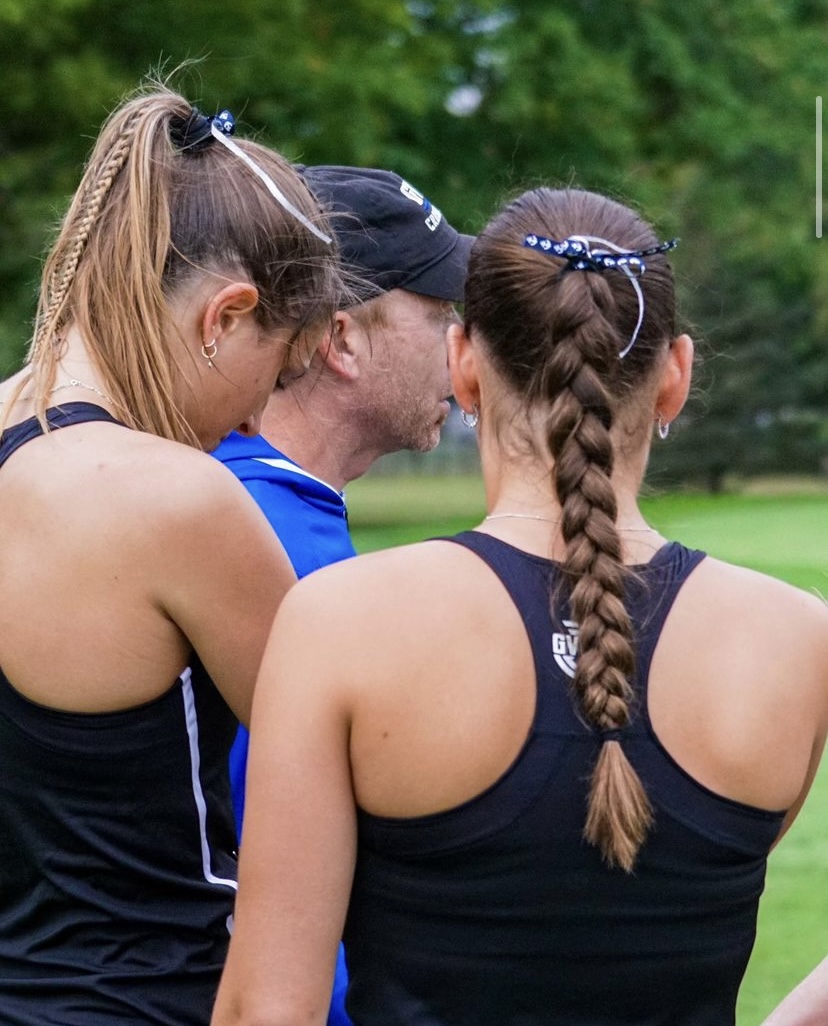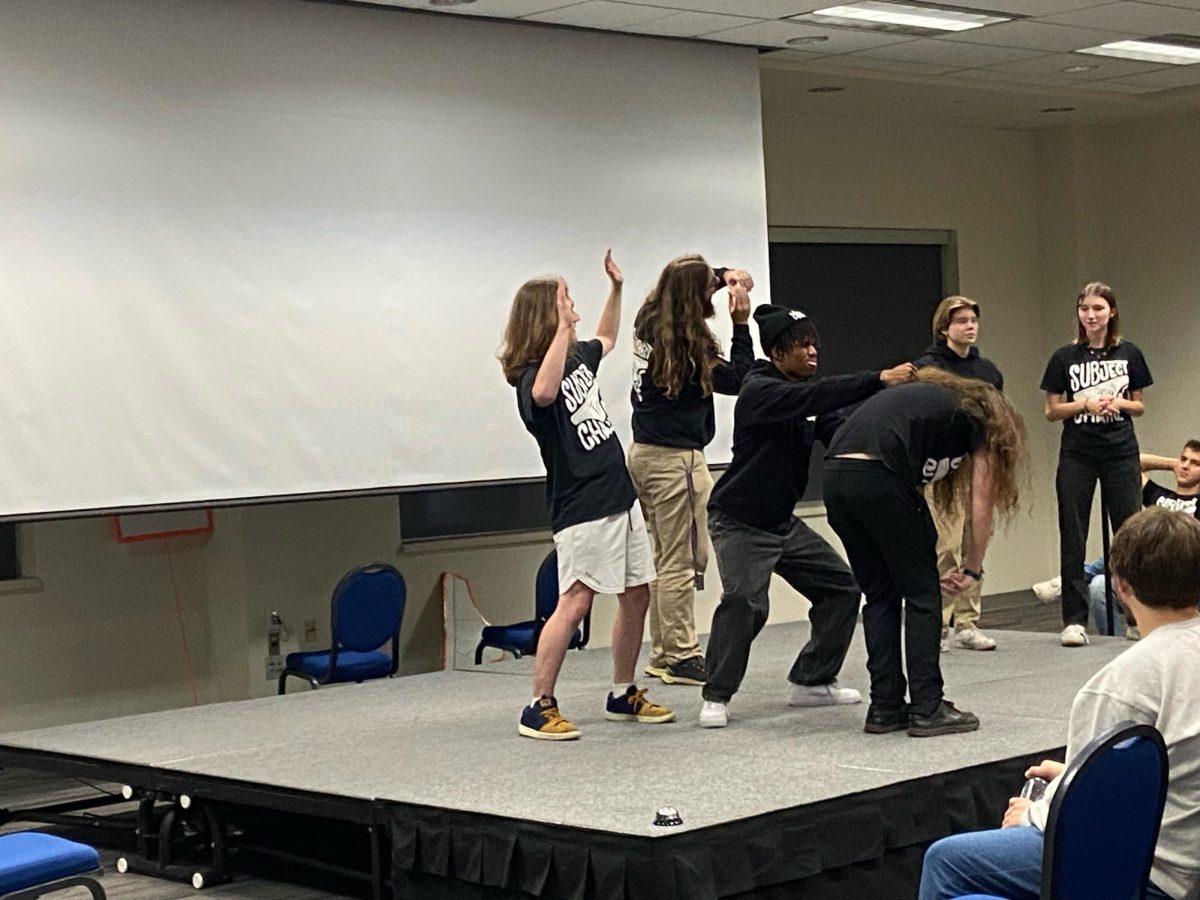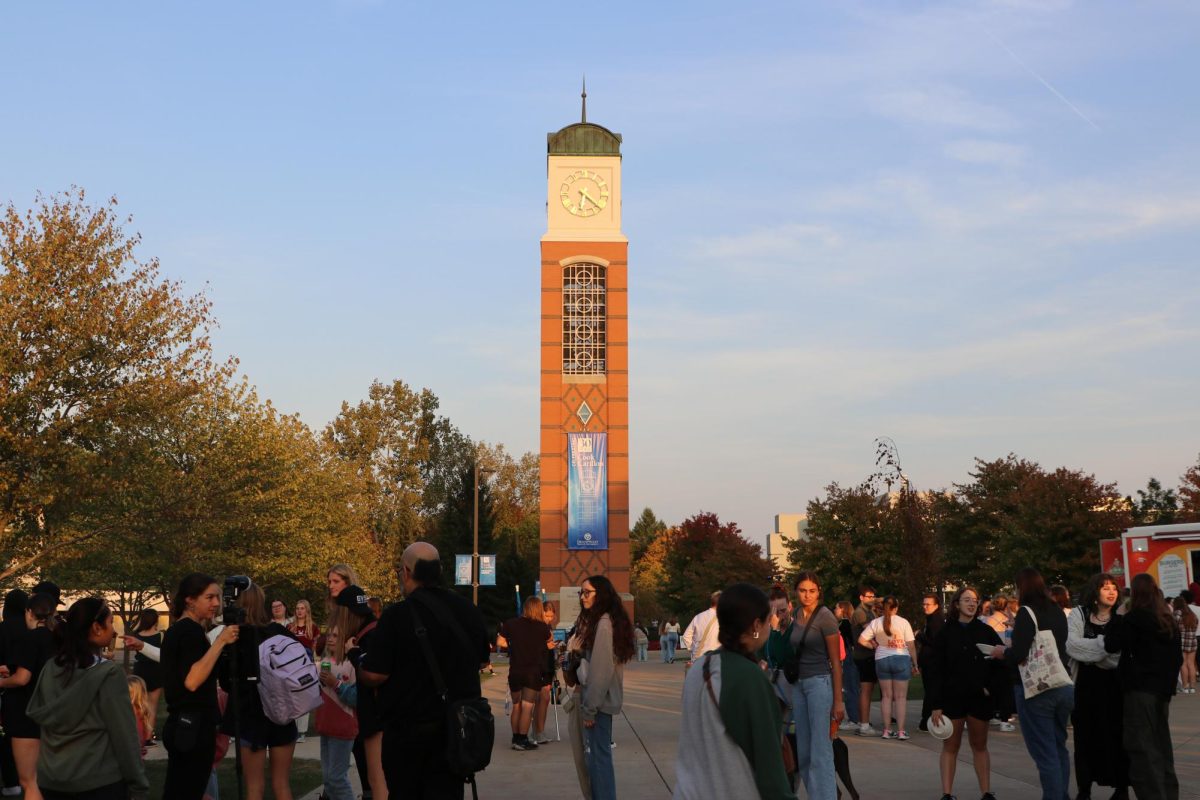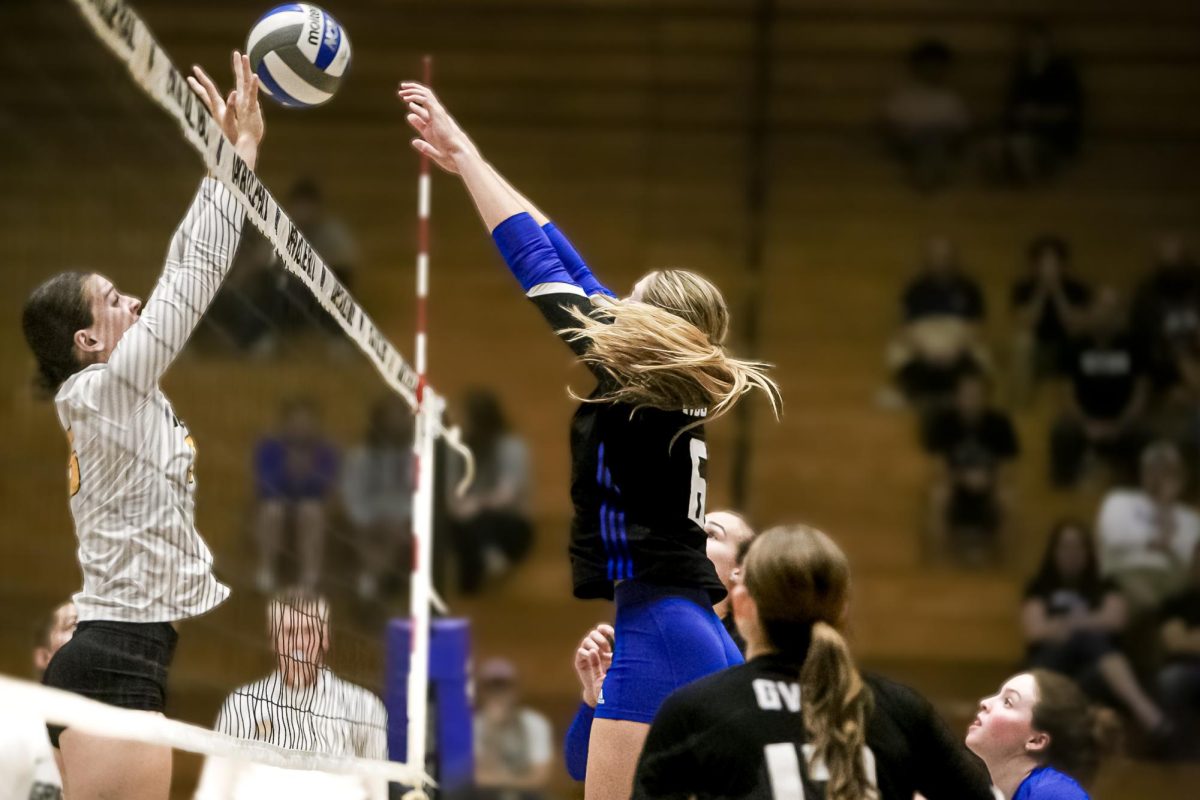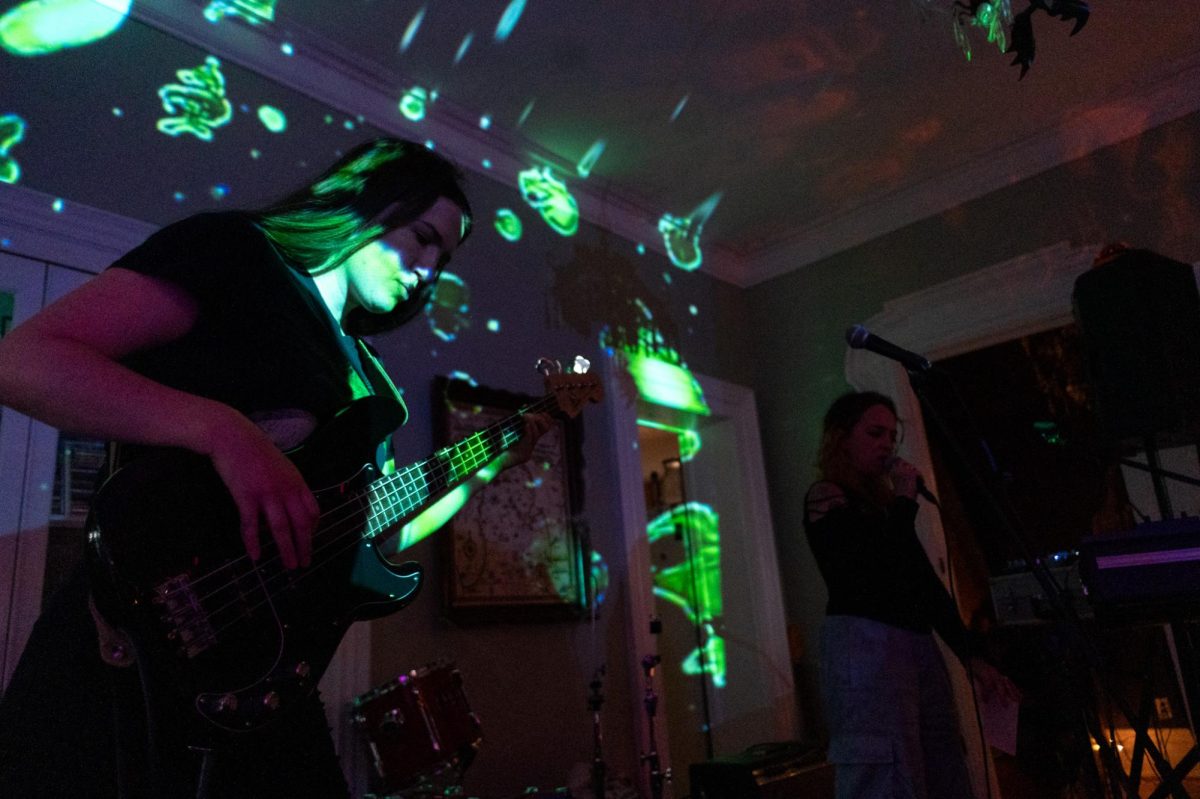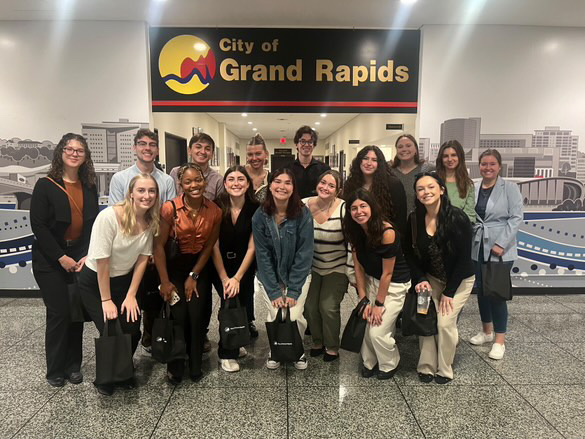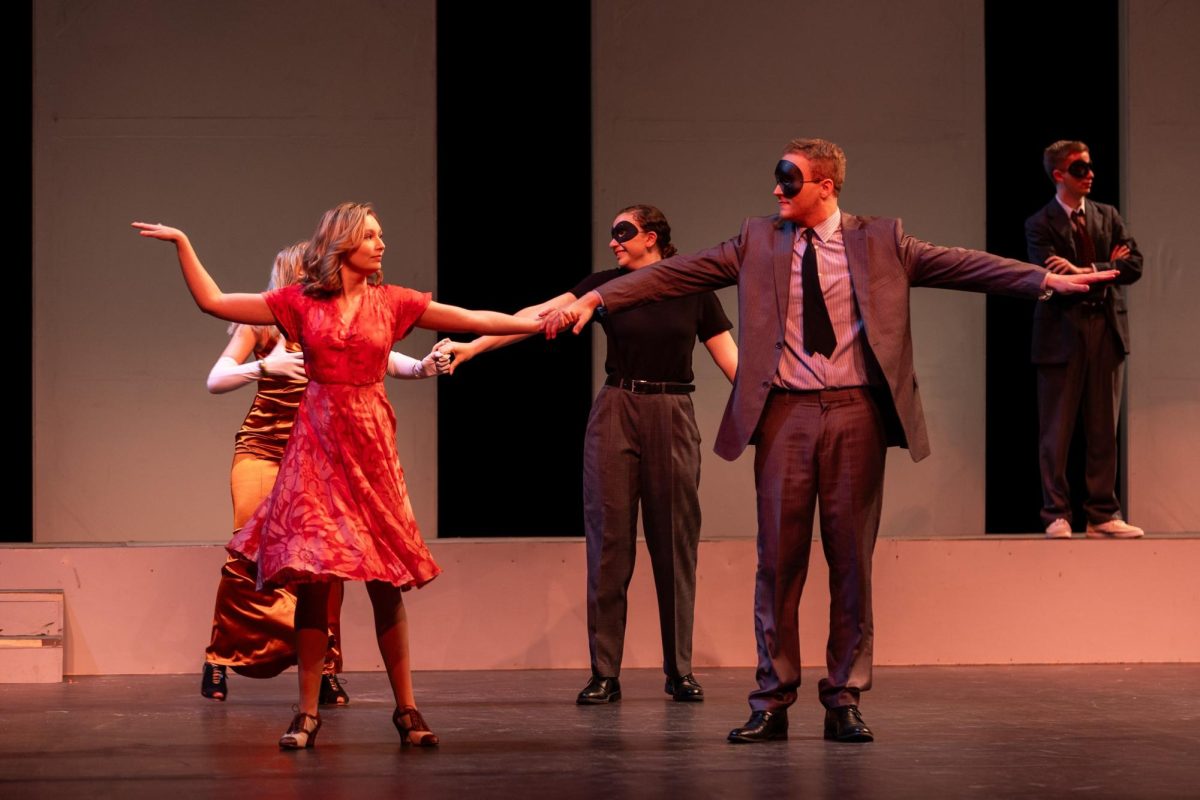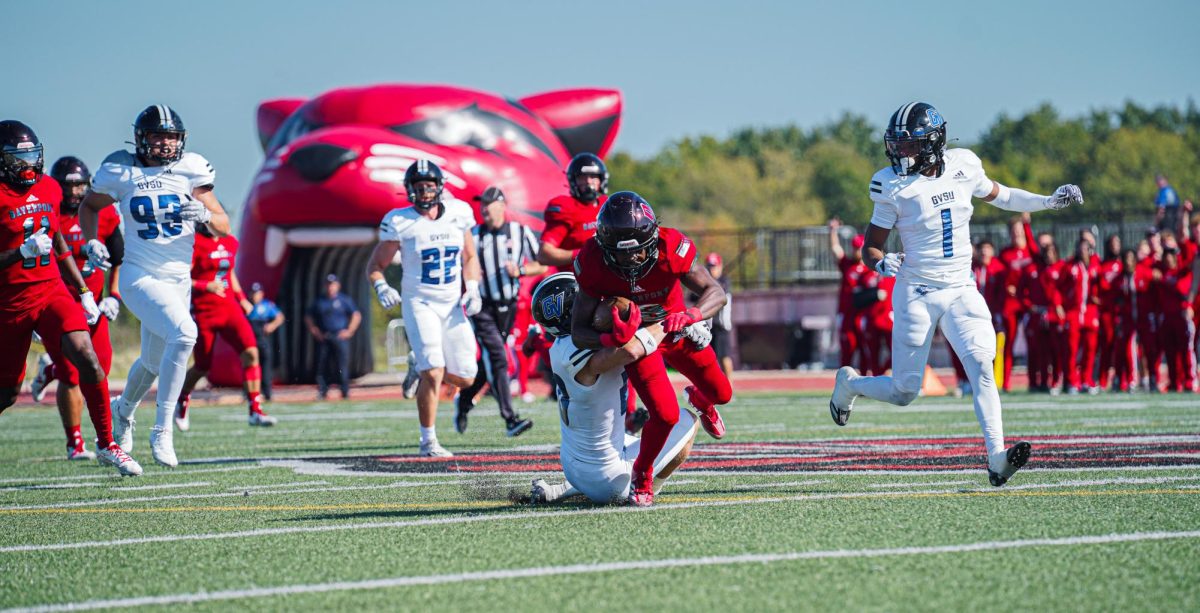Congressman Huizenga addresses veterans in new GVSU police program
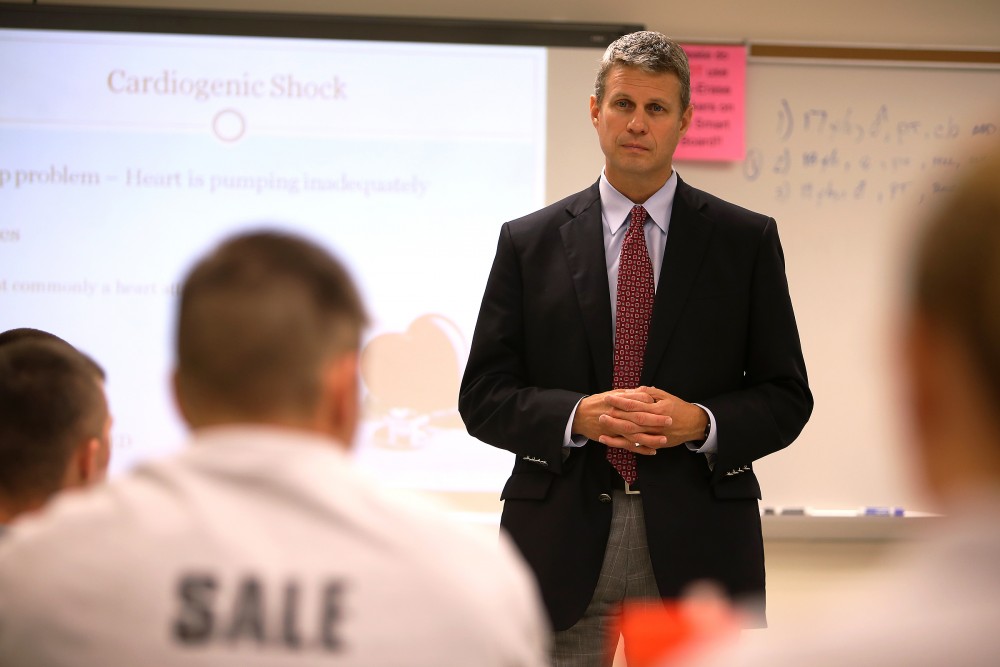
GVL / Robert Mathews U.S. Rep. Bill Huizenga speaking with venterans taking part in the Military Police Basic Training Program hosted at Grand Valley State University.
Jul 30, 2013
U.S. Rep. Bill Huizenga visited Grand Valley State University and had a casual conversation with individuals taking part in Michigan’s first Military Police Basic Training Program on July 29.
The MPBTP is a condensed law enforcement program aimed exclusively at military police personnel. The program, which runs for six weeks, is 10 weeks shorter than normal police academies.
“There are not many no-brainers in life,” Huizenga said of the decision to implement the program. “This, to me, makes a tremendous amount of sense.”
Huizenga, whose father is a disabled World War II veteran, said he keeps a challenge coin he received from a Marine in his pocket to remind himself of those who have served.
“I carry that challenge coin every day as a reminder to myself working in the city of Washington of what the effects are, what you guys did in uniform, and what your parents and families have gone through,” Huizenga said to the class of recruits. “I’m thrilled that we’re able to sort of extend that thank you in a small way, with some of these programs, where we can go in and do some education things like this.”
Huizenga also spoke a little about his time as a congressman in Washington.
“You can study bullfighting, you can watch bull fights, but until you’re in the bullring holding the red cape and having a bull charge at you, you don’t really know what it’s like bullfighting,” he said. “And that’s kind of like what it is in Washington. You don’t really fully understand what you’re getting yourself into until you’re in the middle of it.”
At times there have been concerns over programs geared specifically toward veterans and individuals taking advantage of those programs, but the MPBTP “should be a no-brainer,” Huizenga said.
“How do we say no to you all who have served your country already and want to continue that service in the communities?”
The Grand Valley program, which began in June, was chosen as the first site in the state by MCOLES, the Michigan Commission on Law Enforcement Standards. A second training session will begin Aug. 19 at Camp Grayling and is sponsored by Kirtland Community College and Northwestern Michigan College.
Ten other states in the nation have similar programs aimed at military police, but those programs only provide minimal training for recruits, said Julie Yunker, director of GVSU’s police academy.
“Nothing is as comprehensive as this first Michigan police academy,” Yunker said.
Over the past few years people within the state began recognizing that military police personnel, who already had training in certain areas, were spending too much time and energy at regular academies, Yunker said. They started asking if an abbreviated academy would be beneficial, and that’s when MCOLES came in.
“MCOLES did some research,” Yunker said. “They went to all the branches of the military and looked at their specific law enforcement training and said, ‘we can shorten an academy, give them exactly what they need and they can be successful in civilian law enforcement.’”
Because the military operates under a different set of laws than in civilian life, Yunker said that is the biggest challenge of the program’s training. Other things, like firearms training, are condensed because recruits already have the military experience.
“We don’t need so much time on gun safety, or bearing or professionalism, we know a lot of that,” said Jennifer Zuccaro, a recruit in the program.
Though the program is 10 weeks shorter than the normal academy, that wasn’t the only reason she chose the MPBTP.
“I know a lot of us are on our own and have the money situation where we still have to work, so this allows us to work and still go to the academy,” Zuccaro said. “And also, we don’t need to learn the military bearing that the other academy does.”
Zuccaro said training was going great and is looking to apply in Michigan’s Farmington Hills, Livonia and Westland area after graduating Aug. 6.
“So that’s basically what’s happening,” Yunker said. “We’re taking people who have training and experience and giving them the quick session in order to make them the same thing that any other college graduate who doesn’t have that experience and training gets.”
Currently the program is only for 2013, but Yunker would be pleased to do it again next summer.
“We hope to really get some great feedback from these first two classes, and make any modifications or adjustments that need to be made to make it a better program, and then be ready to again think about 2014,” she said. “If we do it at Grand Valley, with the blessings of my bosses, then I would expect the summer time to be the traditional time for us to run this academy.”
Yunker said the program shows that Grand Valley and the state of Michigan support veterans and acknowledges the credibility of military law enforcement training.
“It’s a service to people who have served us,” she said. “Really it’s the caliber of the person who comes into the academy that makes this successful, and I see in these seven a very high caliber.”



